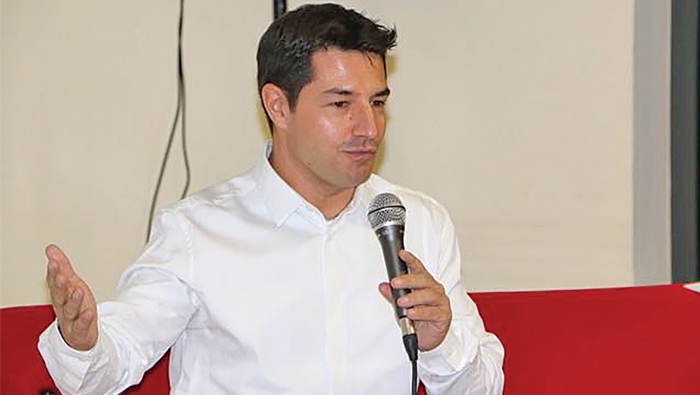
Muscat: Three critically acclaimed French authors have revealed that they gain inspiration from Oman’s landscape and heritage.
Antonin Potoski, Guillaume Thourode and Nicolas Presl, all declared their love for the Sultanate during an exclusive interview with the Times of Oman.
Thourode, author of several non-fiction books showcasing his adventures around the world, said, “I came to Oman thanks to the University of Nizwa where I was offered the position of Assistant Professor in French. I came in August 2015 and found myself very happy in Oman, and more particularly, with the beautiful Birkat Al Mowz, where the campus is located. My wife and I are happy in this old oasis where birds chirp in the palm trees. We truly feel as if we’re living in a paradisiac spot.”
On writing, he said, “The best travel experiences for me involve people and landscapes. Nice people without an interesting territory don’t stimulate me. On the other hand, a striking landscape without encountering anyone from that place makes the experience void.”
“I will always remember swimming in the Purple Clouds Lake in Nanjing with my Chinese friends. Similarly, I wrote a travel book about Ireland and I think the most vivid scenes concern the strange cityscape of Belfast, where nomadic Irish travellers live. I am attracted to human aspects first. I was attracted by the Irish people before seeing the country,” he added.
The trio came to Oman as part of French School Muscat’s Francophone Day celebrations. Their stay was organised by the school with support provided by the Ambassador of France to Oman, Renaud Salins.
Potoski shared Thoroude’s enthusiasm for the Sultanate. “I come to Oman because of its perfect position between East Africa and South Asia,” he said. “My books are real stories, happening in Myanmar, Bangladesh, Ethiopia, Japan, Indonesia, Mali; in between those countries, there is always a very peaceful few days stop in the Sultanate.”
This year, his books alongside those of Thoroude and Presl, were studied by three classes of students at the French School in Muscat. “Our lecture on March 27 was the final event for brilliant students who were already familiar with our works, and I have to say their questions were brilliant.”
He added, “Oman is interesting to me because it brings together many of the societies I explore and describe in my travelling stories: Oman has historical ties with East Africa. It also has modern ties with the Indian Subcontinent, with the presence of thousands of expatriates.”
“Also, I would say Oman is the most interesting of the Gulf countries, because of the diversity of the Omani society. When you listen to conversations in public spaces, you can hear Arabic, Swahili, and Balushi. Those multiple origins make Oman very special for a travel writer like me,” he further added.
Potoski has won numerous awards in Europe and even helps publish the works of young photographers as a curator.
“Indeed, while I was writing my first books in Mali and Morocco, I worked as a photography curator and published the first series of several young photographers. Some of them were simple villagers who enjoyed witnessing their daily lives, another was a football player.”
On his work, he says, “More than an artist, I am a writer. I write only non-fiction books. That means that before writing, all those stories need to be lived! Thus, a big part of my work is meeting people who end up becoming like family.
“I travel to complicated areas such as the border between Ethiopia and Eritrea or the border between Myanmar and Bangladesh. This is possible only because, in both places, I have more than 10 years of close relations with the locals. I talk about friendship, about magical moments in those lost places.
“I don’t have a house and have not stopped travelling since 1996. I can say that the ‘moment’ becomes my house and that friendship makes me feel at home, wherever it happens.”
Like Thoroude, Presl is also a resident of Oman. He initially came three years ago to teach French. “Oman is a country in flux, it’s fascinating to observe. It’s a place very different from France, where change happens quickly. But the Omanis, they remain the same, welcoming and accessible. I like the quiet life here,” Presl said.
The graphic novelist, whose works cover a diverse range of themes and subjects, draws strongly on history. “I have always had a taste for history and I have this practice of reading historians’ texts in parallel with literary ones. It is important to know a little bit of history to better understand our era,” he added.
Presl concluded with a message for young writers and artists. “Our societies need imagination, new ideas, images, and poetry. Young artists must persevere in their desire to share because we will need them to confront and understand the times to come.”